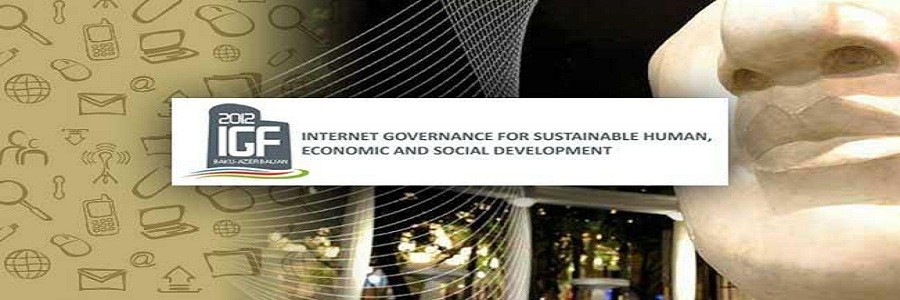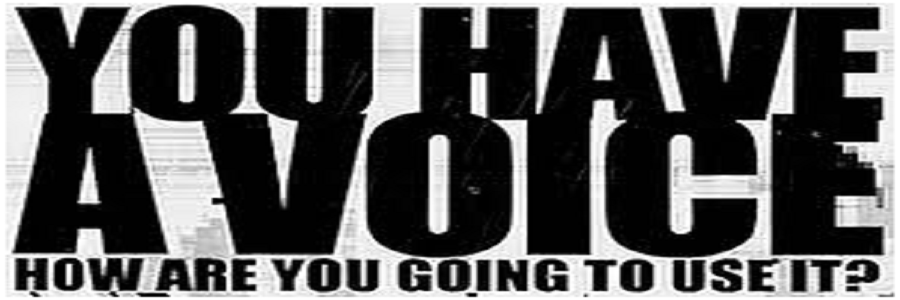January 18, 2013 - Comments Off on Pakistan, Youtube Bans and Education for Awareness
Pakistan, Youtube Bans and Education for Awareness
-Haroon Riaz
Some governments need bans to make their presence felt.
It is hardly any surprise that the Pakistani government is one such authority. When you are unable to do anything about a violation of your perceived moral higher ground, it probably feels good to deny access to it, which would supposedly correct and improve the morals of the society at large.
So why Pakistan blocks youtube every now and then, you might ask?
This has not been the first youtube ban, and if it ever gets lifted, it certainly will not be the last. Because censorship somehow satisfies the vain sense of virtue of our nation, because that is all we can do about certain things and it makes us feel good.
At the same time, as we are in a middle of a “democracy”, you know, a democracy that only tolerates enough freedom of speech that the masses are conditioned to tolerate. Not realizing how undemocratic bans on communication channels are. You cannot help but wonder if the ban is really about blocking blasphemous and “indecent” material, whatever in the world that means.
Have you ever considered how vigilant the PTA or the Pakistan Telecommunication Authority, Pakistan's information big brother, is when it comes to blocking youtube when the slightest opportunity presents itself before it?
Again I am not really sure if it is actually about the blasphemous material on youtube, especially the seemingly-indefinite current ban which was enforced by the government after they discovered that some people in Pakistan had discovered that some people in Egypt had discovered a trailer of an unimportant second rate anti-Islam motion picture called the Innocence of Muslims.
Even some of the most educated conservatives in the country, justified it. All the seemingly intellectual talk show hosts seemed to endorse the ban as well. This time it is more personal as far as Google is concerned and goes far beyond blocking a page or two, as previously has been the case with Wikipedia and facebook.
This time around, as it concerned the ever popular youtube than the ever popular and the much-easier-to-convince-and-not-easier-to-give-up facebook, the PTA was hoping to mold Google in succumbing to the local traditions and to sacrifice their vicious ideals of American freedom to operate in Pakistan in peace. But apparently to no effect. But that does not mean that the PTA is sitting idle.
PTA had been investing in a powerful mechanism to block hundreds of thousands of websites, particularly pornographic websites. So probably these bans mean something greater, such as the preliminary steps to a greater internet control. This means we would see more messages like the one in the image above whenever we are trying to visit a website with “indecent” content.
Because slowly but surely the ambiguous definition of “indecent” will begin to eat up just about anything that comes down as a threat on the radar of insecurities of the PTA and the nationalistic, religious and ideological ethos of the conservative Pakistani society. So, the government control of the internet and the youtube means the PTA converting it very much into the Pakistani media, which actually kills the entire point of using the internet.
But if the Pakistani government did block the youtube because of the blasphemous video, then there is no sense in lifting it because the video is still there. Isn't it? As youtube would most probably not remove the video on the basis of the principles of freedom of expression and their terms of services, whether you agree with them or not.
But if the PTA does get youtube to operate under the Pakistani laws, then you can say goodbye to possibly a lot of other content too, such as historical foreign documentaries and particularly atheistic and science youtube channels, which are in their own right “converting” the educated youth to a certain extent. At least its encouragement of critical reasoning shakes up their faith a little. It’s disturbing for the harmony of the society.
I tweeted this a couple of weeks back.
How do I know there is still a government in Pakistan? Youtube is still blocked. -pic.twitter.com/UAoDV0Bw
What I found interesting were a few responses to the tweet. Things like a youtube ban is not something that you cannot live without. The people in old times did not have computers and the internet and youtube, but they lived their lives happily.It's such a lame argument, if it can hardly be considered one at all. We have been so brainwashed that we can't even recognize our rights.
It is like saying that you should not claim your rights just because you have been deprived of it for centuries, like the right to education. Furthermore, centuries ago people had also been living without electricity, utilities and they had no CNG to fuel their cars with. Give up all that too and stop complaining about the government then.
Speaking of the government, a couple of days back Senator Rehman Malik, the interior Minister tweeted that he had recommended to lift the ban on youtube and had forwarded the summary to the Prime Minister. He also confirmed that the PTA would be using a “strong firewall” to block anti Islam, blasphemous and pornographic, you know “indecent”, material.
- There was a gr8 demand to unblock Utube from all sections of society esp fellow tweeps..expect the notification tday! Hope u r all happy now [tweet link]
- PTA is finalizing negotations for acquiring a powerful firewall software to totally block pornographic and blasphemous material. [tweet link]
Now, even if the youtube ban is lifted, that is bad news on just so many levels.
Because apparently the government is hellbent for greater internet control and to screw the great internet freedom that Pakistan had enjoyed in the earlier years, largely thanks to the ignorance about it in the conservative circles. Furthermore, I have observed, though I could be wrong, that the mainstream media has been growing more conservative by the day.
Rehman Malik can try all he can to give a shot at progressive actions, but given his party's resistance to liberalism (they need to get votes) and electoral alliances with obscurantist fundamentalist parties such as Sahebzada Fazal Karim's Sunni Itehad Council (a prime proponent of the youtube ban), the government will remain a guilty party.
And shortly after Malik's recommendation, the Prime Minister Raja Pervez Ashraf ordered blocking the youtube again after a brief lift of ban as the moral police immediately discovered that the blasphemous video was still up and running. So much for taking progressive steps. Still I think we must appreciate his individual efforts.
I hardly see any improvements in the near future, as apparently the mainstream Pakistani media is moving far more towards the conservative side of the slider since the Musharraf days. Because it’s about the faith of the Momin.
However, it is really our choice whether we choose to ignore our rights as a nation or whether we continue to indulge in acts of ignorance and obscurantism, fooling ourselves by taking them as acts of religious virtue. Fortunately or unfortunately, this problem is connected with a number of others in our society and are caused by the indoctrination that most of our nation has gone through.
Only secular education with encouragement of critical reasoning can help bring about the necessary change. These would impregnate our children with the values of liberty and reason that would emancipate them from the bonds of religious obscurantism. So it is up to us, whether we want to breed sheep out of farms or raise intelligent individuals who at least know their own rights, if not make the world a better place.
But in the end, this is just for the government of Pakistan, including the politicians and the bureaucracy, to know that there are people in Pakistan who are aware of their rights. They won't break any laws. Some of them may not want to go to jail to have them and certainly not die for them, at least not me, but they know what it’s about.
Life is more precious than any principles or political correctness, when it comes down to it.
Modified version for Digital Rights Foundation of the post that appeared on the Truth Journal.



